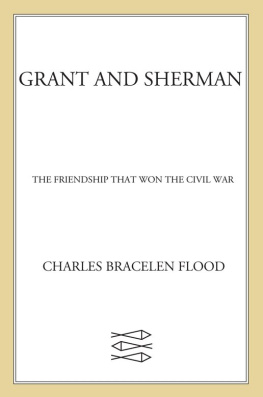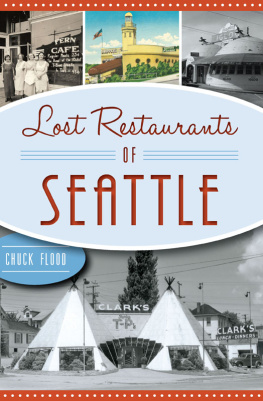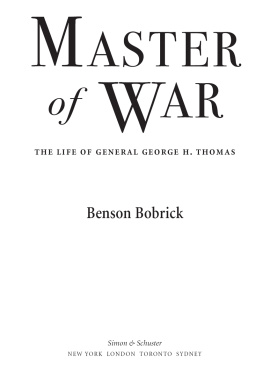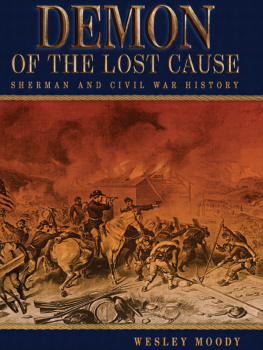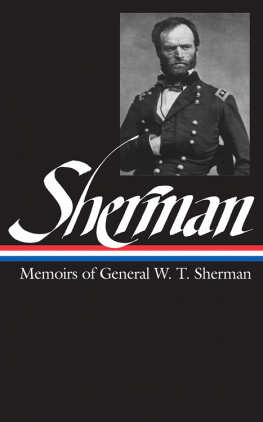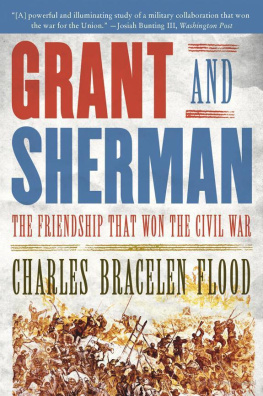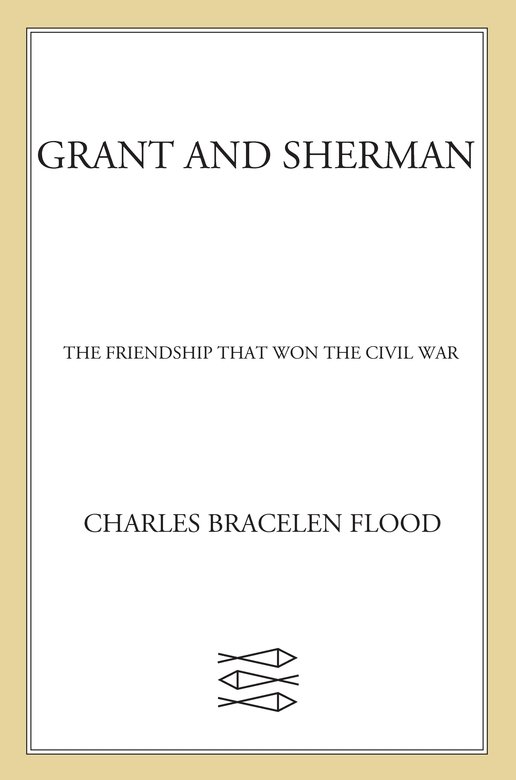The way this book came into being is a story in itself, but there would be no story to tell were it not for the steadfast devotion and unwavering support always shown me by my wife, Katherine Burnam Flood.
At the time I finished LeeThe Last Years , which begins with Robert E. Lees surrender of his Army of Northern Virginia to Ulysses S. Grant at Appomattox Court House, I found myself feeling that Grant was a singularly easy person to underestimate, both as a general and as a man. Grant played only a minor role in that book, and my attention in the ensuing years shifted to subjects and individuals far from the Civil War.
In the autumn of 2002, having finished a manuscript devoted to one of those other subjects, I began casting about for an idea for yet another book. This led me into a number of discussions with my friend Lee Van Orsdel, who was then Dean of Libraries at Eastern Kentucky University in my city of Richmond, Kentucky. For some thirty years I have been making use of Easterns John Grant Crabbe Library. I have done research in a number of leading libraries in the United States and abroad, and in my judgment this million-volume library is, in relation to its mission, the best in which I have worked. I have seen it grow under the leadership of my dear friend the late dean Ernest E. Weyhrauch and his successor, Marcia Myers, and Lee Van Orsdel has brought it to new heights in every way, including the friendly efficiency and cooperation extended to its student and faculty users and others like myself. As a result, it has become my second home.
After Lee and I discussed possible topics ranging from the GI Bill to Napoleon to the battles in China during 1945 to 1949, I found myselfthinking about Ulysses S. Grant. I knew that the librarys holdings included a number of Civil War items, and soon found myself sitting down with Chuck Hill, university archivist. At this point I wanted to see if I could write about a less-known aspect of Grants life, such as his marriage, which Bruce Catton described in these terms: They shared one of the great, romantic, beautiful loves of all American history. Chuck is the proverbial quick study, and better connected in Civil War circles than I knew. Within three minutes, he had me on the phone with Professor John Y. Simon of Southern Illinois University, the editor of the monumental multivolume Papers of Ulysses S. Grant, one of the great works of American scholarship, which is published by the Ulysses S. Grant Association. Professor Simon told me that a study of the Grants marriage was currently being written; during that and another call, I backed away from this idea, but Professor Simon kindly indicated his willingness to hear from me again, as I continued to think about Grant.
My search for the right idea then led me to my friend William Marshall, the director of Special Collections and Archives at the University of Kentucky. Bill is a Civil War expert who is currently the secretary of the Kentucky Civil War Round Table, the nations largest such group. During two lengthy conversations, I found myself coming back to the idea of Grant as soldier, but in what context? His rise in four years from being a former captain in the prewar Regular Army, a man who had never commanded more than a hundred soldiers and who was forced to resign for drinking while on duty, to being the victorious commanding general of the Union Army that had a strength of a million men? Or should it be a description of his bloody battles with Lee in Northern Virginia? Bill listened, made suggestions, and spoke of what had and had not been written on Grant and the Civil War. I left him knowing that it would be Grantbut Grant, how? Grant, what?
I was ripe for a Eureka! moment, and it came during a long-distance telephone call with Thomas Fleming, a close friend of many years, the author of some forty books on various aspects of American history, and the man who succeeded me as president of PEN American Center. We went through a number of possibilities, and I suddenly said, Grant and Sherman. Tom, who has been enormously helpful to me in his insightful readings of several of my manuscripts as they developed, agreed that it was an interesting, worthwhile idea: there had never been a book that focused on Grant and Shermans military partnership and their warm,supportive friendship. (It should be noted, however, that Joseph T. Glatthaar devotes a chapter to the Grant-Sherman relationship in his excellent Civil War study, Partners in Command: The Relationships Between Leaders in the Civil War, where he makes this insightful defining comment: Grant comprehended problems in all their simplicity; Sherman grasped them in all their complexity.)
From the moment of my conversation with Tom Fleming I never looked back, but there was a lot of looking ahead to do. In an exchange of letters with John Simon, he gave me important recommendations on what to begin reading, and was good enough to read the first part of my book as it evolved. During this time, I had some three hours of meetings with Charles P. Roland, alumni professor of American history at the University of Kentucky and the author of works including the admirable one-volume history, An American Iliad: The Story of the Civil War. His enthusiasm for the subject, combined with his suggestions for research, sent me forth with an added understanding of why he is so highly regarded by his colleagues and his graduate students. I later had the benefit of a most interesting and helpful conversation concerning the postCivil War period with George C. Herring, alumni professor of history at the University of Kentucky, who provided me with a useful article regarding American attitudes about the nations westward expansion and entrance into the Spanish-American War.
An important figure who soon appeared on my horizon was Professor John F. Marszalek, the W. L. Giles Distinguished Professor Emeritus of History at Mississippi State University and author of Sherman: A Soldiers Passion for Order and Commander of All Lincolns Armies: A Life of General Henry W. Halleck. Of all the authorities I have ever approached on whose time I had no claim, John Marszalek has been the most generous in his thoughtful, careful readings of my manuscript at successive stages, and in his candid reactions to what he was seeing. He tells me that his graduate students call him The Cheerful Assassin; I can only say that his helpful comments are characteristically those of a tough, fair, gifted teacher who is sharing his large and significant fund of knowledge. His part in this has improved my book greatly, and its shortcomings remain mine alone.
From that point in the development of Grant and Sherman, I was in the library at Eastern Kentucky University virtually every day, doing research and writing the story as it evolved. Every kind of cooperation andassistance was afforded me. Eastern has a team of excellent and dedicated young reference librarians, all of whom responded most helpfully to many queries on a great array of topics. A special word of thanks is due to Linda Sizemore, Government Documents Librarian, who, often on short notice, came up with articles on various important subjects, and answers to endless questions that ranged from the population of Vicksburg, Mississippi, in early 1863, to the time that Lincolns funeral train left Washington on the morning of April 21, 1865. Other reference librarians and assistants, working under the direction of Julie George, were unfailingly helpful. They include Karen Gilbert, Kevin Jones, Linda Klein, Victoria Koger, Brad Marcum, Leah Banks, and student workers Christine Cornell and Jennifer Mason. Rob Sica shared in his fellow reference librarians efforts, and has directed me to materials useful for my future projects. Steve Stone, a reference librarian now at Lexington Community College, assisted me earlier in this books evolution. I also wish to thank Carrie L. Cooper, Coordinator of Research and Instructional Services, who became the interim Dean of Libraries at Eastern when Lee Van Orsdel accepted the position of Dean of Libraries at Grand Valley State University in Allendale, Michigan.

